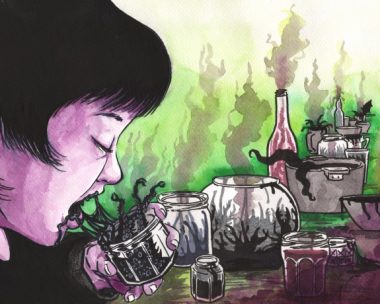In Mystery and Manners: Occasional Prose Flannery O’Connor said, “Art never responds to the wish to make it democratic; it is not for everybody; it is only for those who are willing to undergo the effort needed to understand it.”
In other words, to be good at anything—especially the arts—requires meticulous toil and determination in developing the skills particular to one’s craft. Talent and desire alone are not enough. You’ve got to be willing to put in the work.
Aaron Gwyn is an author who has put in such work. In “Drive,” Gwyn makes masterful use of descriptive language to thrust his readers into the carnal, high-speed experience of his two main characters. In the print copy of the story, first published in the Winter 2009 issue of The Gettysburg Review, Gwyn takes four and a half pages to describe the intense event of acceleration, lust, power, control, manipulation, and desire that we will later come to know as a drive for shorthand. His details are tangible without being overly graphic.
After the intentionally drawn-out scene, Gwyn writes, “They started calling them drives. He’d turn and ask if she wanted to drive, and she’d know what he meant.”
And so did we—the readers.
Because of the painstakingly precise groundwork he lays in the first four and a half pages of the story, Gwyn is able to evoke a desired effect from his audience with nary a sentence; he only needs one word: drive. He uses that shorthand, a major plot device in the narrative, and never has to waste any more words trying to duplicate or outdo the original scene.
One mistake that inexperienced writers make if they have a story with a recurring plot element –I’m raising my hand as a recovering transgressor— is to either write too much exposition while creating a redundant scene or to become “thesaurus heavy” in trying to use different sounding words to capture the same action or sequence of events.
Neither of which makes for good literature or entertaining fiction.
Gwyn’s purposeful and skilled use of descriptive language enables him to repeat elements in his story without writing a repetitive story. He depicts a scene that is intensely sensual, but not gratuitous. Gwyn creates a literary work that we are able to understand and enjoy because he put in the necessary effort to craft it as such.
O’Connor also said, “There is no excuse for anyone to write fiction for public consumption unless he has been called to do so by the presence of a gift. It is the nature of fiction not to be good for much unless it is good in itself.”
If so, all we who have been bestowed the gift of writing fiction must also resolve to develop that gift as diligent craftsmen.




